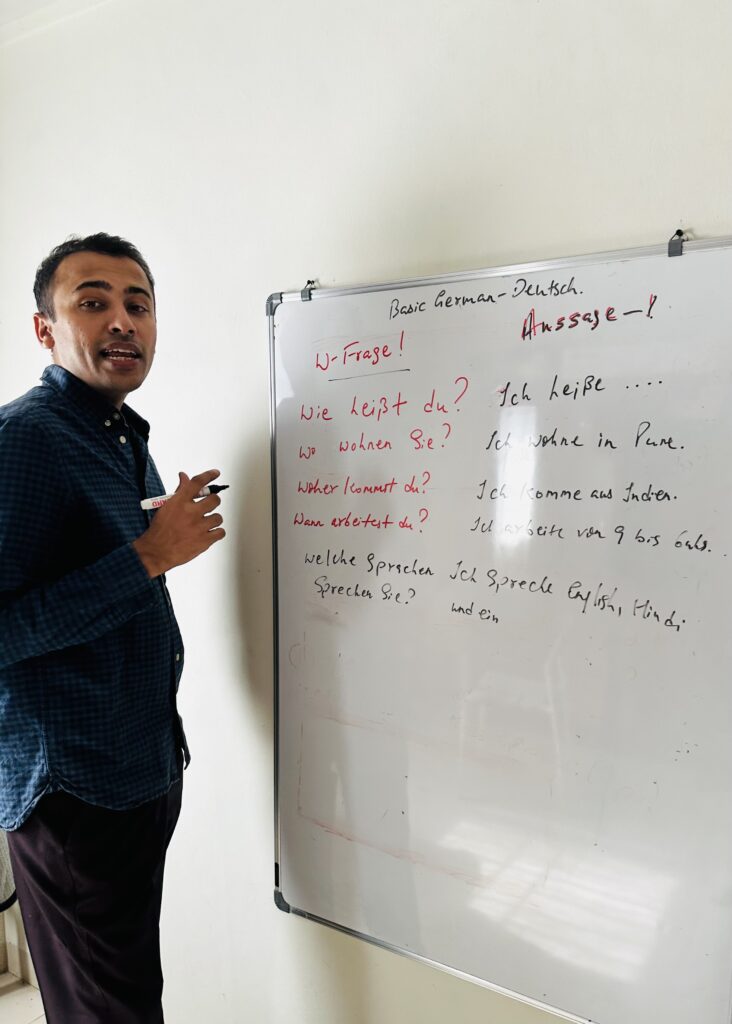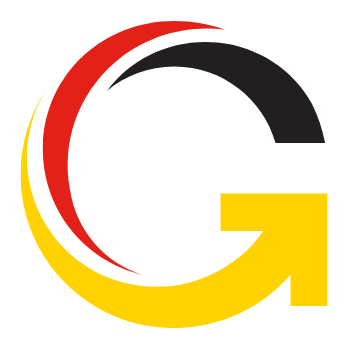Introduction
Learning German quickly can be a game-changer, whether you’re a traveler navigating new destinations, a student aiming to master the language for academic success, or a professional looking to expand career opportunities. Fluency in German opens doors to cultural experiences, international communication, and higher job prospects. German Learning Hacks
However, German is notorious for its complex grammar, long compound words, and unique pronunciation challenges. Many learners struggle with sentence structures, verb conjugations, and understanding native speakers’ fast-paced conversations. It can feel overwhelming, but with the right strategies, you can accelerate your learning process. German Learning Hacks
This guide unveils powerful and research-backed German learning hacks designed to help you speak and comprehend German faster. By focusing on core vocabulary, pronunciation mastery, immersive listening, and technology-driven learning, you’ll be equipped with the best tools and techniques to boost your fluency. Let’s dive into the essential strategies that will transform your German learning journey! German Learning Hacks
1. Build a Strong Foundation
A strong foundation is the key to learning German efficiently. Instead of wasting time on random vocabulary, focus on the 1000 most common words, which make up 80% of daily conversations. These essential words include:
- und (and)
- ich (I)
- sein (to be)
- haben (to have)
- machen (to do/make)
- können (can/to be able to)
Master High-Frequency Verbs
Verbs drive communication, so mastering the most-used verbs will allow you to construct sentences quickly. Some of the top verbs to focus on include:
- Ich bin müde. (I am tired.)
- Ich habe Hunger. (I am hungry.)
- Wir gehen ins Kino. (We are going to the cinema.)
Understand Sentence Structures
Instead of memorizing isolated words, learn sentence patterns that you can reuse:
- Ich möchte einen Kaffee. (I want a coffee.)
- Kann ich bitte die Rechnung haben? (Can I have the bill, please?)
- Wo ist der nächste Bahnhof? (Where is the nearest train station?)
By understanding how sentences are structured, you can easily swap words and create new phrases with confidence.
2. Improve Pronunciation & Speaking
Clear pronunciation makes a huge difference in being understood. Many German learners struggle with sounds like ch, r, and ü, but with the right methods, you can overcome these challenges.
Use the Shadowing Technique
Shadowing is one of the most effective ways to refine pronunciation. It involves listening to native speakers and immediately repeating what they say, mimicking their tone, rhythm, and pronunciation.
Practice with Tongue Twisters
Tongue twisters train your mouth muscles and improve articulation. Try these:
- „Fischers Fritze fischt frische Fische.“ (Fischer’s Fritze fishes fresh fish.)
- „Brautkleid bleibt Brautkleid und Blaukraut bleibt Blaukraut.“ (A wedding dress remains a wedding dress, and red cabbage remains red cabbage.)
Use Speech-to-Text Apps
Apps like Google Translate and Speechling let you practice speaking by checking your pronunciation accuracy.
Mimic Native Speakers
Watch videos and pay close attention to how German speakers stress syllables, pause, and change their pitch. This will help you sound more natural and fluent.
3. Listen Actively to Understand Faster .
Understanding spoken German is one of the biggest hurdles for learners. Native speakers talk fast, use contractions, and blend words together, making comprehension difficult.
Watch German TV Shows & YouTube Channels
Start with “Slow German” or “Easy German”, where speakers talk at a learner-friendly pace. Then, gradually challenge yourself with native content like Netflix’s “Dark” or the crime series “Tatort”.
Use Podcasts with Transcripts
Podcasts like Slow German and Coffee Break German allow you to listen while reading along with transcripts, helping you connect spoken and written language.
Listen to German Music & Follow Lyrics
Music is a powerful memory aid. Listening to German songs while reading the lyrics strengthens your listening skills and pronunciation.
Practice Dictation
Write down what you hear in German audio clips. This improves both your listening comprehension and spelling.
4. Think in German .
One of the most effective ways to speed up fluency is to stop translating in your head. Instead, train yourself to think in German directly.
Label Objects in Your Home
Place sticky notes on everyday items with their German names: der Tisch (table), das Fenster (window), die Tür (door).
Internal Dialogue Exercise
Start narrating your daily activities in German:
- Ich stehe auf. (I wake up.)
- Ich putze meine Zähne. (I brush my teeth.)
- Ich gehe zur Arbeit. (I go to work.)
The more you do this, the more natural thinking in German will become!
5. Use Technology & Apps .
Leverage technology to make learning interactive and convenient.
Top Apps for Learning German
- Anki: Spaced repetition flashcards for vocabulary mastery.
- Duolingo: A gamified way to reinforce grammar and vocabulary.
- LingQ: Perfect for reading and listening comprehension.
AI Chatbots for Conversation Practice
Chat with AI tools like ChatGPT to practice forming sentences in German.
Learn German Here
https://www.youtube.com/@germanwithgaurav






